Based on CsvHelper Documentation, there are several ways that we can achieve our desired results.
1. Ignore White Space from Headers (which I believe should solve your problem easily)
In CsvHelper 3 or later, use PrepareHeaderForMatch (documented at http://joshclose.github.io/CsvHelper/configuration#headers) to remove whitespace from headers:
csv.Configuration.PrepareHeaderForMatch =
header => Regex.Replace(header, @"\s", string.Empty)
In CsvHelper 2, set the IgnoreHeaderWhiteSpace flag which tells the reader to ignore white space in the headers when matching the columns to the properties by name.
reader.Configuration.IgnoreHeaderWhiteSpace = true;
2. Read Manually
We can read each field manually like:
var reader = new CsvReader(sr);
do
{
reader.Read();
var record=new DataRecord();
record.TimeOfDay=reader.GetField<string>("Time of Day");
record.ProcessName=reader.GetField<string>("Process Name");
record.PID=reader.GetField<string>("PID");
record.Operation=reader.GetField<string>("Operation");
record.Path=reader.GetField<string>("Path");
record.Result=reader.GetField<string>("Result");
record.Detail=reader.GetField<string>("Detail");
record.ImagePath=reader.GetField<string>("Image Path");
} while (!reader.IsRecordEmpty());
3. Class Mapping:
We can manually map between our class's properties and the headings in the CSV file using name class mapping like this:
public sealed class DataRecordMap:CsvClassMap<DataRecord>
{
public DataRecordMap()
{
Map( m => m.TimeOfDay).Name("Time Of Day");
Map( m => m.ProcessName).Name("Process Name");
Map( m => m.PID).Name("PID");
Map( m => m.Operation).Name("Operation");
Map( m => m.Path).Name("Path");
Map( m => m.Result).Name("Result");
Map( m => m.Detail).Name("Detail");
Map( m => m.ImagePath).Name("Image Path");
}
}
Then we should register it using:
reader.Configuration.RegisterClassMap<DataRecordMap>();
